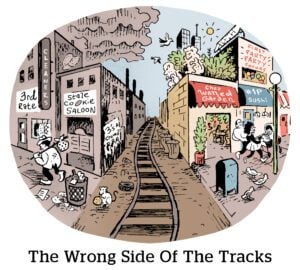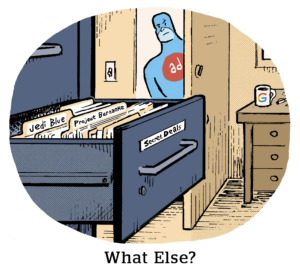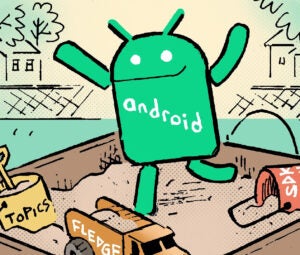Here’s today’s AdExchanger.com news round-up… Want it by email? Sign up here.
High Spot
Spotify reported its second consecutive quarter of record-setting profit growth. The company’s Q2 profit margin of 29.2% was its highest to date.
Spotify continues to make most of its revenue from paid subscriptions, which accounted for $3.6 billion for the quarter. Ad-supported revenue was only $540 million.
However, Spotify is working to grow advertising’s piece of the pie. Ad revenue was up 13% YOY. The Spotify Audience Network for podcast ads saw more participation from publishers and advertisers compared to last quarter. And Spotify will soon release Quick Audio, a generative AI tool for audio ads, to spur adoption with advertisers.
On the user front, monthly active users rose 14% from last year to 626 million. (Its paid subscriber base totals 246 million.)
After earnings, Spotify’s shares jumped 14% in early trading on Tuesday. This comes after a 2023 marked by heavy losses. Spotify cut its staff by 17% last December, which yielded a 16% drop in expenses. Spotify attributed its healthy Q2 to growth in its user base and finally getting podcast business costs under control.
The Online Olympics
The Olympics is a no-brainer for big brands. But Gen Z’s media habits and aversion to linear TV are forcing advertisers to sharpen their strategy, writes Mike Shields at his newsletter, Next in Media.
For example, the 2022 Olympics were NBCU’s lowest-rated ever, even though consumption of Olympics coverage on digital platforms skyrocketed.
Now we’re two years further along the transition away from linear TV. Plus, this is the short-form video era – and it remains to be seen whether NBCU can adapt dramatic, high-production Olympics broadcasts to short-form formats.
NBCU is doing more off-linear programming this year, including streaming 5,000 hours of live Olympics on Peacock, celebrity-hosted highlight shows and a Red Zone-esque interface for watching multiple concurrent events.
But Peacock isn’t exactly where the youngs spend their time, argues Vayner’s John Terrana. “If we’re setting up a campaign against Gen Z […] we’ll lean into TikTok, YouTube Shorts, Facebook and Instagram Reels.”
And NBCU is chasing those viewers on social, gaming and other platforms with large, young audiences.
Future major sporting events could be compelled to include these platforms by default, Shields writes, or include influencers in distribution deals.
Data Fix
In April, McDonald’s Canada ended a popular coffee subscription. Circle K, a US convenience store chain, scrapped its beverage subscription. Last week, Pret got rid of its super-popular coffee subscription, reports the Times of London.
So … who cares?
Most people don’t get their caffeine fix via these subscriptions. But the trend merits a callout because it’s tied up with first-party data and the pursuit of ecommerce growth.
Pret began its coffee subscription program in September 2020, during a desperate time when London office-goers – its core customer base – were not in offices or in London, the Times reports. But it was also a broader strategy change for Pret, which previously didn’t discount, toward collecting data and fine-tuning prices, promotions and profit margins on the basis of that data.
Big brands, store chains and restaurants went all-in on first-party data platforms in 2020 and 2021. But for many, the first-party data machine never got going or didn’t justify the cost. (In these cases, the costs came from unprofitable coffee sales because the programs were exceedingly generous – to accrue more data.)
But Wait, There’s More!
Comcast misses earnings as streaming and theme parks slow their roll. [Bloomberg]
Duolingo subjects its users to “emotional blackmail.” Gen Z loves it. [Business Insider]
How the shake-up in the Democratic presidential ticket could impact political ad spending. [Digiday]
You’re Hired!
The Brandtech Group hires James Dow for a newly created role, gen AI creative director. [release]

















